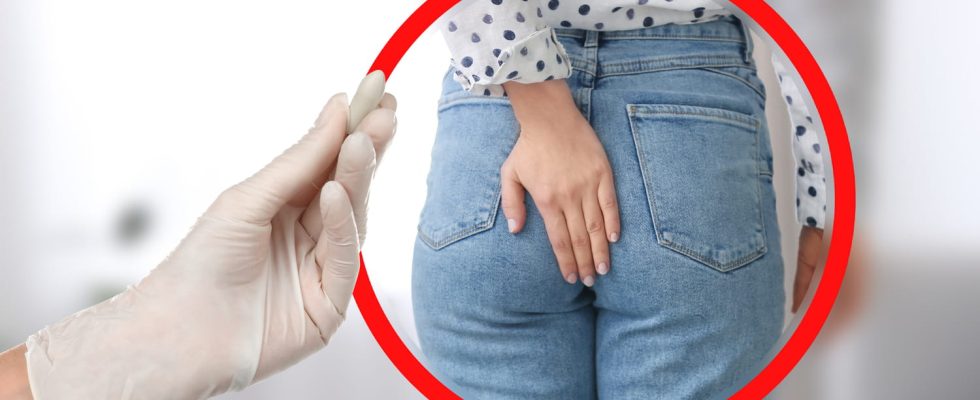Anal fissure is a wound in the anal canal (between the anal margin and the rectum) that causes pain and bleeding. Cream, ointment, operation… All the remedies to treat it.
A common and benign condition, an anal fissure is due to the tearing of the skin covering the lower part of the anus. She is painful. Besides constipation, what are the causes of an anal fissure? How to cure it? With a “miracle” cream? An operation ?
What is an anal fissure?
“The anal fissure is an ulceration of the anoderm, the skin of the anal canal which goes up to the middle of the latter. It must be differentiated from a hemorrhoidal, inflammatory, infectious or tumoral problem by questioning and clinical examination., describes Dr. Thierry Higuero, proctologist and member of the Board of Directors of the French National Society of Gastro Enterology. The anal fissure is the second reason for proctologic consultation after hemorrhoidal disease. She is more common in young adults regardless of gender and touching 15% of women after childbirth.
Acute or chronic anal fissure?
Anal fissure is considered acute when recent (less than 6 weeks), chronic if older (more than 6 weeks).
Medical treatment has several objectives: to regulate intestinal transit, to heal the crack and to relieve pain. “The regulation of transit is done by a fiber-enriched diet and mild laxatives (mucilages, osmotics, lubricants)” advises Dr. Higuero.
What creams to treat an anal fissure?
Topicalsin the form of creams and suppositories, are often healing based on local anesthetics, vitamins or anti-inflammatories.
What drugs to treat an anal fissure?
The most commonly used analgesics (pain medications) are NSAIDs (nonsteroidal anti inflammatory drugs) and the paracetamol. This support for 6 weeks allows healing of most acute anal fissures. The risk of recurrence remains high if the cause persists and the laxative treatment is interrupted too soon. In the event of failure, a specific medical treatment can be associated which temporarily reduces the tone of the anal sphincter.
When to do an operation?
Surgery should be offered in case of chronic or complicated anal fissure and hyperalgesic or recurrent acute anal fissure. “It is based on two principles that can be associated: reducing the tone of the sphincter by cutting it (sphincterotomy) and removing the anal fissure (fissurectomy)” explains Dr. Higuero. Sphincterotomy is the preferred method in Anglo-Saxon countries. Due to the risk of irreversible anal incontinence (involuntary loss of gas, liquid or even solid stools), its use is very controversial in France where fissurectomy is preferred.
How long does it take to heal from an anal fissure?
On average, it takes about a week for pain related to anal fissure to subside. But complete healing can take 5 to 6 weeks.
What are the symptoms of an anal fissure?
The fissure can be very painful or asymptomatic depending on the degree of contraction of the sphincter (circular muscle) of the anus. “Pain is classically in 3 stages with a burning sensation during the passage of the saddle, a phase of calm then a reappearance of pain in the type of spasm for a few minutes to several hours“, explains Dr. Higuero. Anal fissure is often accompanied by other symptoms:
- Light bleeding
- Constipation reflex by apprehension
- An itchy anus
What is the cause of an anal fissure?
The initial event would be a triggered trauma by the emission of hard and bulky stools (or the sudden evacuation of a liquid stool) responsible for tearing the anoderm. Two other factors explain the persistence of the crack: the contraction of the anal sphincter and poor blood circulation at this level.
Who to consult?
In any case, consult your doctor without delay. The interrogation and the clinical examination are enough to make the diagnosis and to start the treatment. In case of doubt or of therapeutic failure, a proctologic opinion is preferable. If bleeding is observed, the presence of a crack should not prevent endoscopic screening to rule out rectal or colon cancer.
Thanks to Dr. Thierry Higuero, proctologist and member of the Board of Directors of the French National Society of Gastro Enterology.
